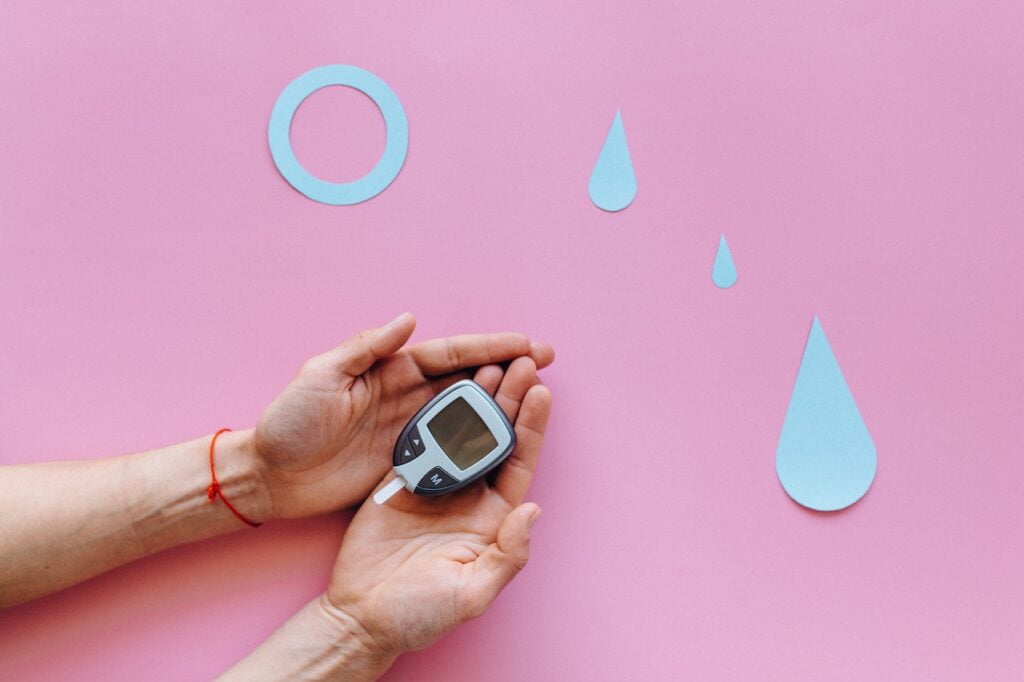Blood sugar levels, also known as blood glucose levels, refer to the amount of glucose present in your blood. Glucose is a type of sugar that is the primary source of energy for your body’s cells. It is important for blood sugar levels to be within a certain range, as high or low blood sugar levels can have serious health consequences.
What is normal sugar levels?
Do you know what is normal sugar levels? The normal range for blood sugar levels varies depending on the time of day and other factors such as whether you have eaten recently. In general, the normal range for blood sugar levels is as follows:
- Fasting blood sugar (blood sugar level after not eating for at least 8 hours): 70-100 mg/dL
- Blood sugar levels 2 hours after eating: less than 140 mg/dL
So is your sugar level normal? It’s important to note that these values may vary slightly depending on the laboratory that performs the test and the specific method used. It’s also important to note that normal blood sugar levels can vary from person to person, and may be affected by factors such as age, weight, and overall health.
What causes high or low blood sugar levels?
There are several factors that can cause high or low blood sugar levels. Some common causes of high blood sugar levels include:
- Diabetes: High blood sugar levels are a common symptom of diabetes, a chronic condition in which the body is unable to properly use and store glucose. There are two main types of diabetes: type 1 and type 2. In type 1 diabetes, the body does not produce enough insulin, a hormone that helps regulate blood sugar levels. In type 2 diabetes, the body does not use insulin effectively.
- Eating too much sugar or carbohydrates: Consuming large amounts of sugar or carbohydrates can cause a rapid increase in blood sugar levels.
- Certain medications: Some medications, such as steroids and certain types of antidepressants, can cause high blood sugar levels.
- Stress: Stress can cause the body to release hormones that can raise blood sugar levels.
- Alcohol: Alcohol can interfere with the body’s ability to regulate blood sugar levels.
Some common causes of low blood sugar levels
- Skipping meals or not eating enough: Not eating enough food or skipping meals can cause blood sugar levels to drop.
- Exercise: Engaging in intense physical activity can cause blood sugar levels to drop, especially if you have diabetes and are taking insulin or other medications to manage your blood sugar levels.
- Drinking too much alcohol: Consuming large amounts of alcohol can cause low blood sugar levels, especially if you have diabetes and are taking insulin or other medications to manage your blood sugar levels.
- Certain medications: Some medications, such as insulin and other diabetes medications, can cause low blood sugar levels if taken in excess.
What are the symptoms of high and low blood sugar levels?
The symptoms of high and low blood sugar levels can vary, but some common symptoms include:
Symptoms of high blood sugar levels (hyperglycemia) may include:
- Increased thirst
- Frequent urination
- Dry mouth
- Fatigue
- Blurred vision
- Slow healing of cuts or wounds
- Weight loss
- Nausea and vomiting
- Dry or itchy skin
- Frequent infections
How are blood sugar levels measured?
There are several different ways to measure blood sugar levels. Some common methods include:
- Fasting blood sugar test: This test measures the amount of glucose in your blood after you have not eaten for at least 8 hours. This test is often used to diagnose diabetes or prediabetes.
- Oral glucose tolerance test: This test measures the body’s ability to use glucose. During the test, you will be asked to drink a sugary drink, and your blood sugar levels will be measured before and 2 hours after drinking the solution.
- Random blood sugar test: This test measures the amount of glucose in your blood at any given time, regardless of when you last ate.
- Continuous glucose monitoring: This method involves wearing a small device that continuously measures and records your blood sugar levels throughout the day and night.
- Self-monitoring of blood sugar (SMBG): This method involves using a portable blood glucose meter to test and record your blood sugar levels at home.
How to treat high blood sugar level
There are several ways to treat high blood sugar levels, also known as hyperglycemia. Here are some options:
- Medications: If you have been diagnosed with diabetes, your doctor may prescribe medications such as insulin or oral hypoglycemic agents to help lower your blood sugar levels.
- Diet and lifestyle changes: Making changes to your diet and increasing physical activity can help improve your blood sugar control. This may include eating more fruits and vegetables, choosing whole grains, and limiting sugary drinks and snacks.
- Monitoring blood sugar levels: Regularly checking your blood sugar levels can help you and your healthcare team determine the effectiveness of your treatment plan and make any necessary adjustments.
- Insulin injections: If you have type 1 diabetes or have been prescribed insulin for type 2 diabetes, you may need to give yourself insulin injections. This can help lower your blood sugar levels and keep them within a healthy range.
Bottomline
If you have concerns about your blood sugar levels, it’s important to discuss them with your healthcare provider. They can help you determine if your blood sugar levels are within a healthy range and provide guidance on how to manage any potential issues. Work with your healthcare team to determine the best treatment plan for your specific needs and medical history.







Leave a Comment
You must be logged in to post a comment.